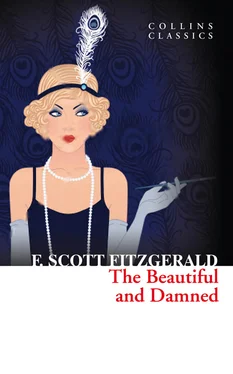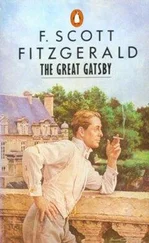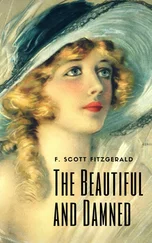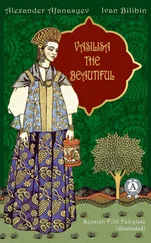In stark contrast to The Great Gatsby came Fitzgerald’s final novel Tender is the Night (1934), which is autobiographical at its heart. At the time of writing the book Fitzgerald’s wife was being treated for schizophrenia and the author holed-up in a house near the hospital in Baltimore, Maryland. There he wrestled with the book and indulged his alcoholism, from which he had suffered for most of his adult life. The story is about a couple who become involved because he is a psychoanalyst and she his patient. She is wealthy and fragile of mind, while he is poor and strong of mind. However, the tables are eventually turned as he becomes dependent on the demon drink and his behaviour sends him on a downward spiral, while she finds someone else and divorces him for a better life.
There are evidently themes in the book that run a close parallel with the real lives of the Fitzgeralds, so it seems that the author used the work as a way of unloading his darkest thoughts. It wasn’t so much a catharsis as a confessional, for Fitzgerald was laying his human flaws and desires bare for all to see, admitting that he had a drink problem and that his wife was his crutch. He was also known to have financial problems due to his frivolities and extravagancies and had turned to other women to satisfy his emotional and carnal desires. Much of his relationship with his wife had been spent as an amateur psychoanalyst, helping her to deal with her diminishing sanity.
Just six years after Tender is the Night was published, Fitzgerald was dead. His self-abuse had caught up with him at the age of only 44 years old, with a massive cardiac arrest. It seems that his last book was also a prophecy of his impending demise from alcohol. It was only a matter of time before his mortal being abandoned his immortal ambition. Fitzgerald the legendary writer has now outlived Fitzgerald the man several times over.
Fitzgerald was friends with arguably the greatest American writer, Ernest Hemingway. Hemingway encouraged Fitzgerald to pursue his prose with artistic integrity, but grew frustrated with Fitzgerald’s tendency towards making his literature commercial. However, most of Fitzgerald’s novels did not perform that well, so a large part of his income came from magazine work, writing short stories which, by their very nature, had to conform to editorial requirements. Nine years after The Great Gatsby , he had struggled to complete his final novel, Tender is the Night . Unfortunately for Fitzgerald the book was received with disappointment and the decline of his writing career continued unabated. In the latter half of the 1930s he found work developing movie scripts and carried out further commercial writing. By the time of his death his literary career had died, too.
In hindsight Fitzgerald’s work is regarded variously, but The Great Gatsby has become the quintessential American classic. Some feel that Fitzgerald’s talent would have been better focused on his novel writing, but fiscal matters always dictated that he continue with his commercial work. However, Hemingway may have been a heavyweight writer but he was certainly not a contented man. For him the praise he garnered for each new book was a fix. When he ran out of ideas he suffered severe depression and ultimately took his own life with a shotgun. Fitzgerald battled on in a workmanlike manner even when plaudits were a distant memory.
The victor belongs to the spoils.
—ANTHONY PATCH
TO SHANE LESLIE, GEORGE JEAN NATHAN AND MAXWELL PERKINS
IN APPRECIATION OF MUCH LITERARY HELP AND ENCOURAGEMENT
BOOK ONE
In 1913, when Anthony Patch was twenty-five, two years were already gone since irony, the Holy Ghost of this later day, had, theoretically at least, descended upon him. Irony was the final polish of the shoe, the ultimate dab of the clothes-brush, a sort of intellectual “There!”—yet at the brink of this story he has as yet gone no further than the conscious stage. As you first see him he wonders frequently whether he is not without honor and slightly mad, a shameful and obscene thinness glistening on the surface of the world like oil on a clean pond, these occasions being varied, of course, with those in which he thinks himself rather an exceptional young man, thoroughly sophisticated, well adjusted to his environment, and somewhat more significant than any one else he knows.
This was his healthy state and it made him cheerful, pleasant, and very attractive to intelligent men and to all women. In this state he considered that he would one day accomplish some quiet subtle thing that the elect would deem worthy and, passing on, would join the dimmer stars in a nebulous, indeterminate heaven half-way between death and immortality. Until the time came for this effort he would be Anthony Patch—not a portrait of a man but a distinct and dynamic personality, opinionated, contemptuous, functioning from within outward—a man who was aware that there could be no honor and yet had honor, who knew the sophistry of courage and yet was brave.
A WORTHY MAN AND HIS GIFTED SON
Anthony drew as much consciousness of social security from being the grandson of Adam J. Patch as he would have had from tracing his line over the sea to the crusaders. This is inevitable; Virginians and Bostonians to the contrary notwithstanding, an aristocracy founded sheerly on money postulates wealth in the particular.
Now Adam J. Patch, more familiarly known as “Cross Patch,” left his father’s farm in Tarrytown early in sixty-one to join a New York cavalry regiment. He came home from the war a major, charged into Wall Street, and amid much fuss, fume, applause, and ill will he gathered to himself some seventy-five million dollars.
This occupied his energies until he was fifty-seven years old. It was then that he determined, after a severe attack of sclerosis, to consecrate the remainder of his life to the moral regeneration of the world. He became a reformer among reformers. Emulating the magnificent efforts of Anthony Comstock, after whom his grandson was named, he levelled a varied assortment of uppercuts and body-blows at liquor, literature, vice, art, patent medicines, and Sunday theatres. His mind, under the influence of that insidious mildew which eventually forms on all but the few, gave itself up furiously to every indignation of the age. From an armchair in the office of his Tarrytown estate he directed against the enormous hypothetical enemy, unrighteousness, a campaign which went on through fifteen years, during which he displayed himself a rabid monomaniac, an unqualified nuisance, and an intolerable bore. The year in which this story opens found him wearying; his campaign had grown desultory; 1861 was creeping up slowly on 1895; his thoughts ran a great deal on the Civil War, somewhat on his dead wife and son, almost infinitesimally on his grandson Anthony.
Early in his career Adam Patch had married an anemic lady of thirty, Alicia Withers, who brought him one hundred thousand dollars and an impeccable entrée into the banking circles of New York. Immediately and rather spunkily she had borne him a son and, as if completely devitalized by the magnificence of this performance, she had thenceforth effaced herself within the shadowy dimensions of the nursery. The boy, Adam Ulysses Patch, became an inveterate joiner of clubs, connoisseur of good form, and driver of tandems—at the astonishing age of twenty-six he began his memoirs under the title “New York Society as I Have Seen It.” On the rumor of its conception this work was eagerly bid for among publishers, but as it proved after his death to be immoderately verbose and overpoweringly dull, it never obtained even a private printing.
Читать дальше












